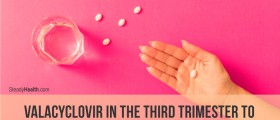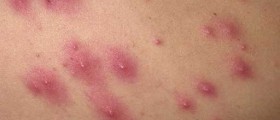What is vulvodynia?
Vulvodynia is a medical condition characterized by chronic or acute pain in the vulvar area, which is around the opening of the vagina. The pain, along with burning or itching of the area, can range from mild to severe and the discomfort can be so intense that it makes it impossible to sit for extended periods of time. Sexual intercourse is also very difficult and painful, for some women even impossible. This condition can last for months and even years.
Experts believe that vulvodynia is much more common than what is reported, probably because many women do not want to talk about it and because there are no visible signs of other issues in the vulvar region.
As for the symptoms, they include pain, stinging, soreness, itching, burning and throbbing in the vulvar area, which includes the area at the base of the abdomen, the labia, the clitoris and the opening of the vagina.
The exact cause of this medical issue is not known, but the experts believe it has something to do with recurring infections such as vaginitis or yeast infections, injury, nerve irritation and allergies. The history of sexual abuse is also listed as one of the potential causes of vulvodynia.
It is important to realize that vulvodynia is not a sexually transmitted disease nor it is an indication of cancer.
Treatment for vulvodynia
Vulvodynia can go away on its own without any treatment, but it is very important that the doctors rule out possible causes of pain in the vagina, such as yeast infections, bacterial infections, diabetes and skin conditions.
Since it is not clear what causes vulvodynia, the treatment focuses on alleviating the symptoms or making them more bearable. Pain medications are one of the options. Vulvodynia can also be managed with antidepressants, antihistamines and anticonvulsants. Topical lidocaine ointments or injections also bring temporary relief, since lidocaine is a local anesthetic.
Biofeedback is another treatment option. In this therapy, a person learns how to control certain body responses, such as body temperature, heart rate and such. In vulvodynia treatment, biofeedback focuses on relaxation of the entire pelvic area. This is particularly helpful because the muscles contract in anticipation of pain, which leads to actual chronic pain.
In some severe cases where the symptoms are intense and last for very long periods of time, surgery might be an option, especially if the pain is localized and can be pinpointed. In many cases the surgical removal of the affected tissue relieves the pain permanently.







-Causes,-Symptoms-And-Diagnosis_f_280x120.jpg)









Your thoughts on this
Loading...